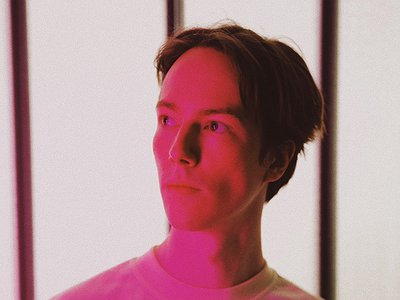Can you talk about a breakthrough work, event or performance in your career? Why does it feel special to you? When, why and how did you start working on it, what were some of the motivations and ideas behind it?
Five years ago, the indie game project INDUSTRIA was brought to life, for which I wrote the music that will be released this summer. This project, has accompanied me all these years and has grown and evolved with me and everyone involved. It's exciting to see how the visions from back then feel today and what has become of the big goals we had back then. I'm very grateful to David, one of the game's developers and a long-time friend of mine, for giving me the opportunity to be a part of it. We had said from the beginning that we didn't want to have a classic game soundtrack. It should be an album that also works in itself and breaks the boundaries of the medium a bit. The music should function beyond the medium of the game. I think I succeeded and I'm very happy about that.
There are many descriptions of the ideal state of mind for being creative. What is it like for you? What supports this ideal state of mind and what are distractions? Are there strategies to enter into this state more easily?
Often, I have a story, a mood or a few images in my head that mentally come together to form a sound. This is then usually the trigger for me to start an idea and try it out. The search for the sound is very important. It gives me access to the song itself, so to speak. Only when the sound ideas are right can I continue to work on the song. Of course, it happens that new thoughts arise during the experimentation, the previous ones are overwritten and new ideas emerge. I think a song has several stages and versions that it goes through. There is the vision, which changes through the realization and finally the reflection of the result, which usually leads to another change. Allowing these changes helps me a lot in being creative.
Music and sounds can heal, but they can also hurt. Do you personally have experiences with either or both of these? Where do you personally see the biggest need and potential for music as a tool for healing?
We all need different things to be happy. I find it exciting to think about the fact that no matter what genre we look at, it's always about expressing the same feelings and emotions. As an example, a jazz musician comes to a very different conclusion when he or she processes grief than someone who plays rock. And yet both express the same feeling. For me, this is the greatest potential of music. That all people can find the right music for themselves to express their feelings, whether they listen or play.
Our sense of hearing shares intriguing connections to other senses. From your experience, what are some of the most inspiring overlaps between different senses - and what do they tell us about the way our senses work?
The attempt to separate our senses from each other does not work. For me, the moments are always inspiring when I notice how while playing and writing music the head slowly turns off and the whole body is filled with the power of the music. To notice how the joy permeates the body and all the senses are present. The smallest movements of the fingers and thinking about the next moment. Everything flows into each other and it is impossible to tell how time affects you. You take place in this moment.
Art can be a purpose in its own right, but it can also directly feed back into everyday life, take on a social and political role and lead to more engagement. Can you describe your approach to art and being an artist?
For me, art is in the first place an end in itself, which then flows into everyday life and, in the best case, reaches other people and takes on a social role in return. I don't make music out of a political commitment. For me, it's about creating a quality of experience that touches people and leads them to thought-provoking ideas. In the best case, I share my personal stories and others have the opportunity to connect. That is what makes art for me. I would describe this approach as very impressionistic.
What can music express about life and death which words alone may not?
The advantage of music over language is that it is often not absolute. When someone we love dies, the thoughts in our head gather into a mesh that cannot be clearly defined because feelings such as sadness, longing, courage, despair mix and become inseparable in this moment. Music can take up this state and make it audible.


